The Sakharov Prize: Fight, Recognition And Legacy For Human Rights
Written by: Samanta Brahaj
Summary
This report spotlights the 2024 Sakharov Prize – the highest tribute paid by the European Union to human rights work around the world – and focuseson: “The Fight” – the concrete actions undertaken by laureates, finalists, and activists at the event -, “The Recognition” – EU’s acknowledgment and support to amplify their mission -, and “The Legacy” – the impact left behind and how to continue advancing human rights.
Introduction: What’s the Sakharov Prize and Its Purpose? When and Where was the Prize Event Held? Who were the 2024 Laureates and Finalists?
Established by the European Parliament in 1988, the Sakharov Prize is an annual award that seeks to recognise and honour individuals and organisations that defend human rights and fundamental freedoms and to inspire global action.
The Prize is named after Andrei Sakharov, a Russian physicist and creator of the Soviet hydrogen bomb, who later became a passionate advocate for human rights. His shift from scientist to activist started with his concerns about nuclear weapons and criticism of the Soviet regime. Despite facing house arrest and hardship, Sakharov continued to fight for democracy, free speech, and individual freedoms. The Prize’s intent is to celebrate and support his legacy.
The 2024 Sakharov Prize Laureates were María Corina Machado (who was represented by her daughter Ana Corina Sosa), leader of the democratic forces in Venezuela, and President-elect Edmundo González Urrutia.
The Finalists included: the two movements “Women Wage Peace” – represented Ms Pascale Chen – and “Women of the Sun” – represented by Ms Reem Al Hajajra (respectively from Israel and Palestine) and Dr Gubad Ibadoghlu, academic and anti-corruption activist – represented by his activist and human rights lawyer daughter Zhala Bayramova (from Azerbaijan).
The 2024 Award Ceremony took place on December 17 at the European Parliament in Strasbourg and was followed the next day by Discussion Panels between 2024 Laureates and Finalists and Civil Society Organisations (CSOs) delegates.
Moreover, the event featured an interactive workshop where CSO Representatives had the opportunity to engage in discussions with European Parliament Communications Officers, Iranian investigative journalists and Sakharov Fellow, Aida Ghajar, and Venezuelan 2017 Sakharov Laureate, Lorent Saleh.
The First Discussion Panel: Women As Protagonists In Peacebuilding with “Women Wage Peace” (Ms Pascale Chen) and “Women of the Sun” (Ms Reem Al Hajajra)
The first Panel was held by Ms Pascale Chen (“Women Wage Peace”) and Ms Reem Al Hajajra (“Women of the Sun”).
Ms Chen explained that Women Wage Peace is a grassroots movement founded in 2014 by a group of Israeli women after the Gaza War/Operation Protective Edge. It currently counts more than 44,000 members which makes it the largest and most impactful peace movement in Israel.
Their concrete actions to advance peace, freedom of thought, and democracy include (but are not limited to): ongoing meetings in the Israeli Parliament, marches, monthly vigils at intersections throughout the country, weekly online programs and webinars interviewing relevant experts in conflict resolution, and events for diplomats.
Similar are the actions undertaken by the movement Women of the Sun: independent Palestinian women’s organisation devoted to finding a peaceful resolution in the Israel-Palestine conflict and to making women’s voices heard in political and peace building decisions with which Women Wage Peace collaborates.
Seeing women in peace building decisions continues in 2024 to be less common.
In particular, Ms Reem Al Hajajra stated “War enters our homes without permission and us, women and children, are the first ones to fall victims but today we are not only victims: we are protagonists in peace building”, underlining how the Sakharov Prize, and, more in general, recognition helps women advance in the field.
Both Ms Reem Al Hajajra and Ms Pascale Chen highlighted that it was (and still is) extremely complicated to openly declare they were collaborating with each other’s associations in their respective countries. “Some called us traitors. Some called us right and just for trying to find a common ground”, Ms Reem Al Hajajra proceeded to add. “A mutual agreement between Israel and Palestine is the only way to achieve peace”, continued Ms Pascale Chen.
In an increasingly polarised world, Ms Reem and Ms Pascale Chen offer an exceptional point of view: different and even opposite sides can come together for true and lasting peace.
The Second Discussion Panel: Fighting Corruption and Advocating Human Rights with Zhala Bayramova, daughter of Dr Gubad Ibadoghlu
Another compelling discussion panel featured Zhala Bayramova, daughter of Sakharov Prize finalist Dr. Gubad Ibadoghlu, an Azerbaijani academic and anti-corruption activist currently imprisoned for his work (research exposing Azerbaijani government crimes).
Representing their father, Bayramova provided a touching account of the sacrifices made by their family and others in the fight against the authoritarian regime and corruption in Azerbaijan.
Stating “Injustice thrives in the shadows, therefore we must shine a light on it”, they highlighted the importance of receiving recognition and having a platform such the European Parliament where they can put a spotlight on and denounce the human rights crisis and crimes committed by the Azerbaijani Government.
They called for international solidarity, urging the EU and global institutions to amplify their support: “Azerbaijan’s human rights crisis has major implications on the EU. Azerbaijan is closer than you think. Fighting against corruption and for fundamental freedoms in Azerbaijan has to be a global action”.
The Last Discussion Panel: María Corina Machado and Edmundo González Urrutia and the Democracy Crisis in Venezuela
This year’s Sakharov Prize Laureates, María Corina Machado and Edmundo González Urrutia, embody the resilience of the Venezuelan people in their struggle for democracy and human rights.
Represented by her daughter Ana Corina Sosa, Machado has long been a leading voice against the authoritarian regime in Venezuela, advocating for free elections and the restoration of democratic institutions.
Ms Ana Corina Sosa called for international urgent cooperation to restore democracy in Venezuela as soon as possible because, as she stated, “Dictatorship murders people”.
President-elect Edmundo González Urrutia also emphasised the need for urgent global action to stop Maduro’s regime and specifically asked Civil Society Organisations to help in the process, as mediators between citizens and institutions.
Both finished their statements accentuating that “Venezuela’s mission is everyone’s mission” and that, although they are receiving recognition, the fight against corruption and for democracy has still a long way to go.
Conclusion: The Legacy to Carry On
Stories, ideas, lessons and tools: the Sakharov Prize event empowered Civil Society Organizations to connect and collaborate, to share resources and means to carry on Sakharov’s legacy, and to advance human rights globally.
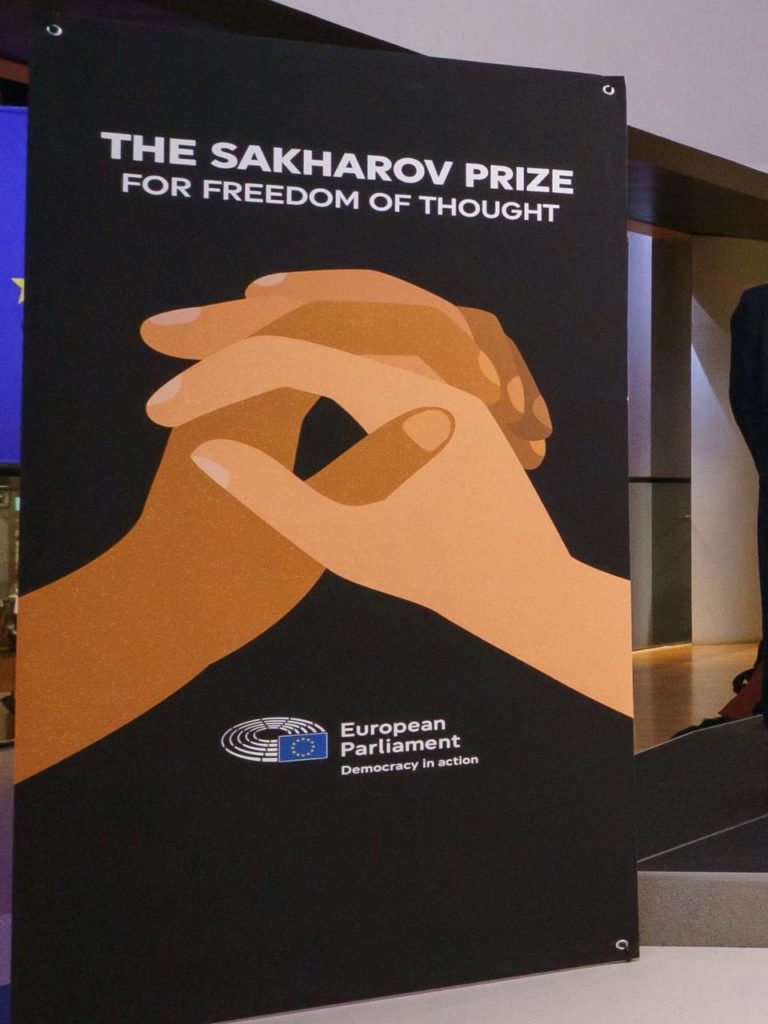
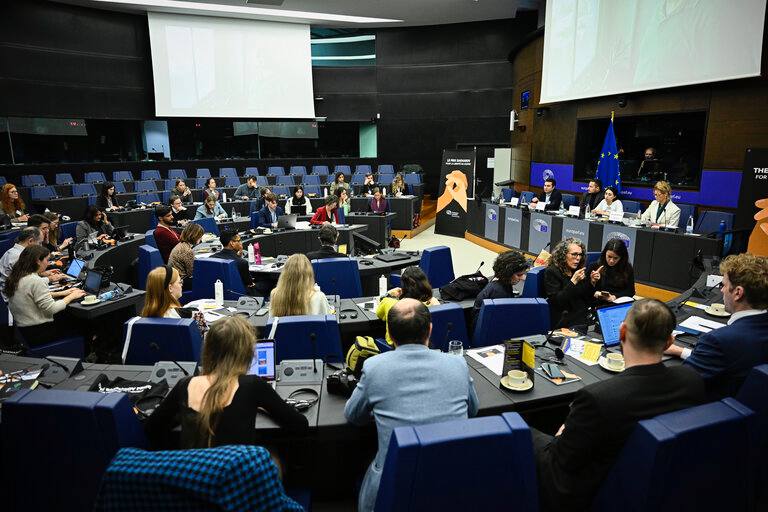
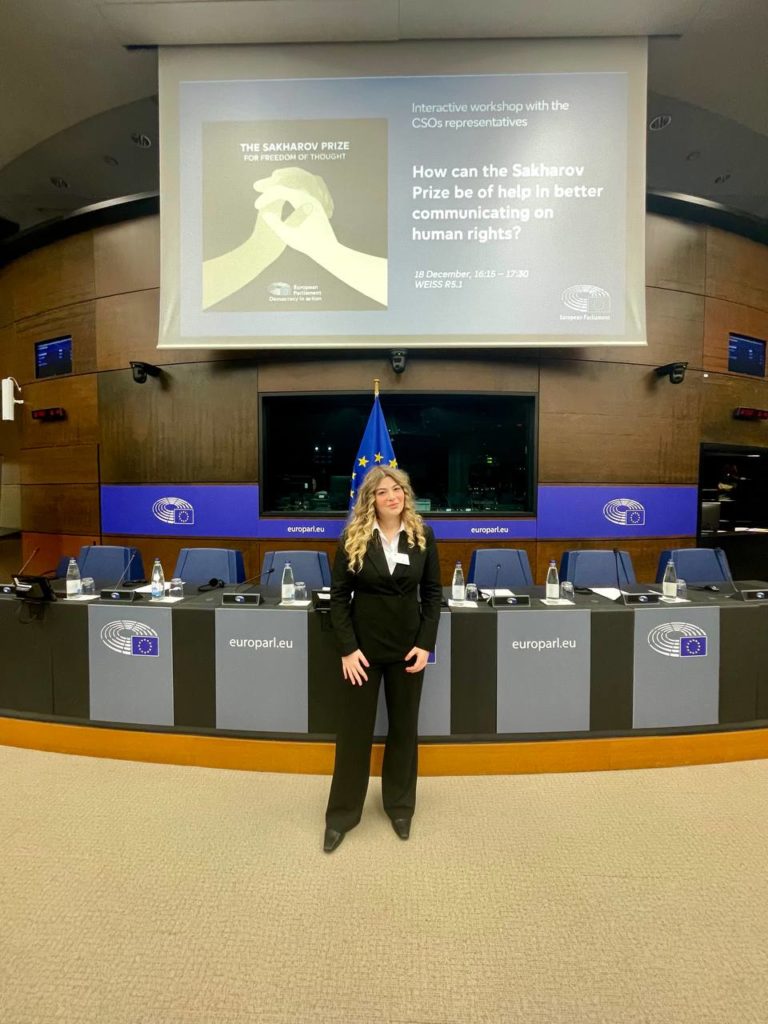
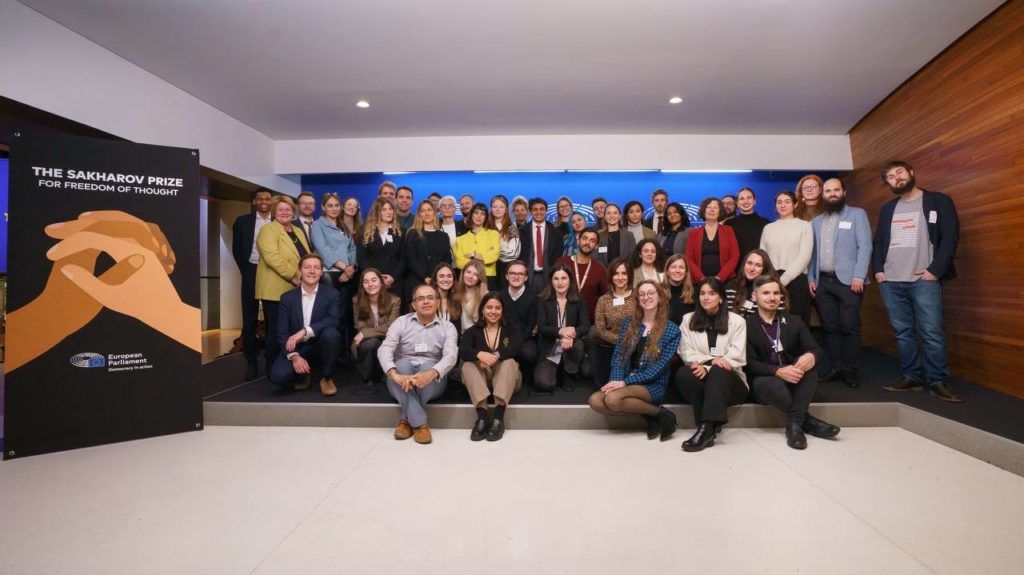
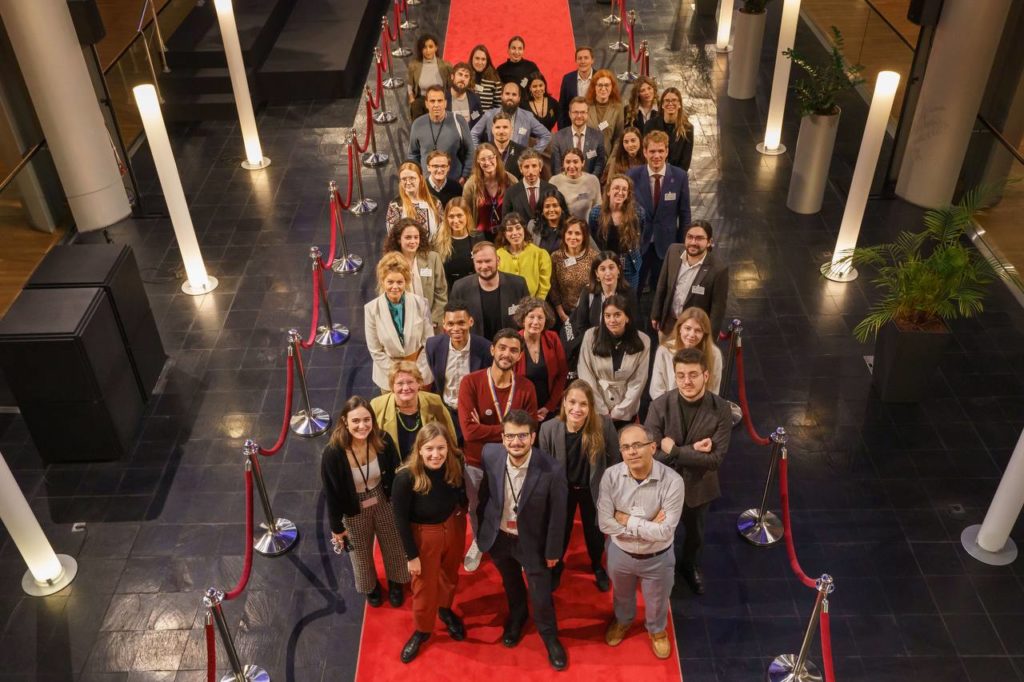

 The ’Ndrangheta’s Infiltration and Threat to European Institutions
The ’Ndrangheta’s Infiltration and Threat to European Institutions  From Paper to Practice: How Grassroots Norms Undermine Gender Rights in Pakistan
From Paper to Practice: How Grassroots Norms Undermine Gender Rights in Pakistan  Exploited Childhoods: The Role of Global Corporations in Perpetuating and Mitigating Child Labour
Exploited Childhoods: The Role of Global Corporations in Perpetuating and Mitigating Child Labour  Human Rights Challenges in Addressing SLAPPs in Media, NGOs and Journalism in the EU
Human Rights Challenges in Addressing SLAPPs in Media, NGOs and Journalism in the EU